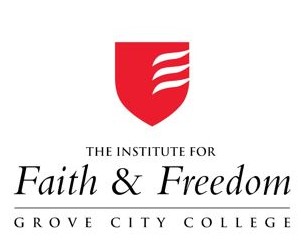An Ancient Antidote to the New Plague of Loneliness

At the beginning of May, U.S. Surgeon General Vivek H. Murthy warned the nation about a devastating new pandemic that represents a growing threat to America’s mental and physical well-being.
No one can question the impact of Dr. Murthy’s dire diagnosis, but his timely alarm neglected to mention the best antidote to the present plague of loneliness—an ancient idea that first appeared more than 3,000 years ago and will, as it happens, be celebrated around the world in festive gatherings at the end of next week.
How bad is the loneliness pandemic? Dr. Murthy reviews all of the most recent research, indicating that a sense of isolation represents a public health crisis at least as grave as obesity or smoking. He estimates that half of American adults regularly experience loneliness that carries an emotional toll of depression and anxiety, and even more serious physiological symptoms including heart disease, stroke and dementia. In a conclusion that should generate nationwide attention, America’s chief physician concludes that “the risk of premature death caused by social disconnection” is similar to the impact of smoking up to 15 cigarettes every day and even more dangerous than extreme obesity or physical inactivity. “Socially connected people,” who make it a point to spend regular time with family and friends, live longer and healthier lives than those who neglect the importance of such engagement.
The bad news shows Americans reducing the time spent with friends by at least 20 hours a month between 2003 and 2020, with most of that decline occurring years before the COVID 19 pandemic. In that same period of time, the average American increased by 24 hours a month the time spent alone—or engaged in the artificial intimacy of social media.
Professor Kerstin Gerst Emerson of the University of Georgia has focused her research on loneliness and blames technology, in part, for the reduction in meaningful, in-person interaction. Social media “can disconnect you while you are with others, you are not present, you are on your phone. You can be in a room with family and friends, but you are not getting the social connections you want.”
The best way to counteract such distractions is to rediscover one of the core ideas of Old Testament culture and a key element of Judeo-Christian civilization: the observance of the Sabbath every week of your life. The purpose is more than the periodic liberation from tiresome toil: it’s to set aside one-seventh of your life as unmistakably different from the rest of it, and to honor the distinction between the urgency of our weekday schedules and the deeper perspective on the timeless importance of communal worship and shared celebration.
As a Sabbath observer, I’m grateful to put aside my car every week when the sun goes down on Friday evening, not because I resent the vehicle as a pollution-belching menace to the environment, but because walking the three miles each way to our synagogue vastly enhances my appreciation of our neighborhood and even the subtlest shifts in the natural cycle.
In fact, all of the many traditions of Sabbath celebration in Orthodox Judaism seem specifically designed to promote fellowship and friendship—including refreshments provided after services by nearly all synagogues, and then home hospitality which involves welcoming midday guests who are both planned in advance and acquired spontaneously from newcomers you meet after prayers. Some of my family’s best friends in the world were originally Sabbath guests and strangers we originally “picked up” in synagogue.
In talking about Surgeon General Murthy’s advisory about loneliness, one member of our congregation jokingly waved aside his concerns. “You know he’s not Jewish,” she observed about the Indian-American physician. “Otherwise, he’d be too busy preparing for Shabbat guests to worry about loneliness.”
Which brings us to next week’s very special Sabbath celebration which combines the regular elements of a normal shabbat with a major holiday in the Jewish calendar. Thursday night through Saturday evening (May 18-20) Jews around the world commemorate the revelation on Mount Sinai with the festival of Shavuot (or Weeks), which marks the first seven weeks of wilderness wandering before God gave the children of Israel the most direct expression of his will, with the tablets of the law and the ten commandments.
One of the most frequent questions about those ten terse rules for living involves Commandment Number 4: “Remember the Sabbath Day and keep it holy…” Surrounded by heavy-duty orders about avoiding murder, theft, bearing false witness, worshipping idols and so forth, doesn’t this expectation of a weekly break in your labors seem relatively trivial and incongruously inserted?
In answering this challenge, Dr. Murthy’s medical advisory is profoundly useful. He reminds us of the essential role of human interaction and communal connection in fostering our happiness, contentment and even physical health. Among many other things, the Sabbath commandment is an order not to live a lonely and isolated existence, and to make the regular connections that are essential to human happiness – and health.
In other words, connecting with your neighbors and kin on a reliable basis is not only the right thing to do – following the instructions from Sinai. It’s also, as it turns out, unequivocally good for you.




















